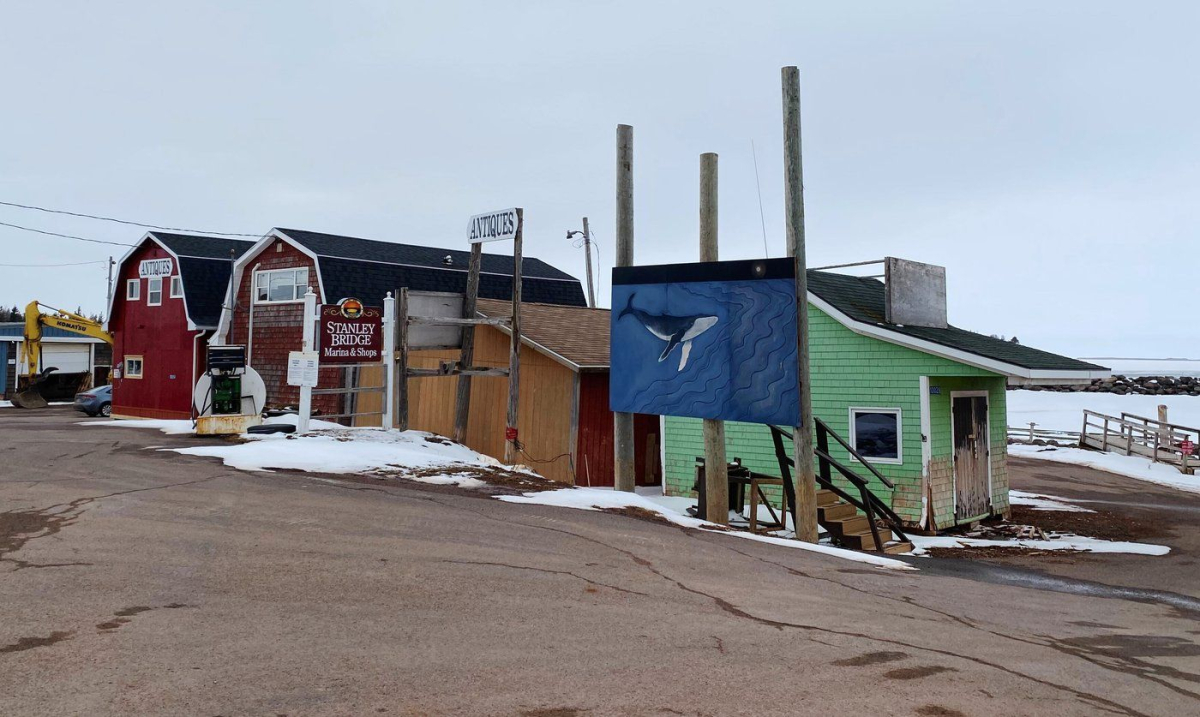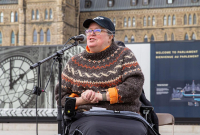Support strong Canadian climate journalism for 2025
A week into the Prince Edward Island election campaign, there has been plenty of talk about health care and housing. But after post-tropical storm Fiona pounded the Island last fall and heightened fears about rising seas, some observers are questioning why climate change is not front and centre on the campaign trail.
Scientists say tropical storms like Fiona that form in the southern Atlantic and head north to the Canadian coast are likely getting more intense as the planet warms. Phyllis Carr, whose Carr's Oyster Bar in Stanley Bridge, P.E.I., suffered minor damage from Fiona, has seen the shoreline change over the years. To her, climate change is "definitely" one of the most important issues this election.
"The amount of erosion that we have in our area is crazy, and on Prince Edward Island as a whole. And how are we going to rebuild?" she asked in an interview last week. "People who own places on the shoreline, how are they going to deal with the loss of land?"
Fiona's wrath is visible in Stanley Bridge, as displaced buildings still sit where the storm left them. But while the storm's fury was an eye-opener, Carr said she's not sure how seriously people are thinking about the climate change issue as the province heads to an April 3 vote.
"If we go through another Fiona … to be hit as hard as we were and for that to happen again in another year or two down the road, it is scary," she said.
Marvin Graham's fishing boat, Greenwitch, was damaged when Fiona hit on Sept. 24 and it's in a shop for repairs. But the owner of Graham's Deep Sea Fishing is not sure what comes next because a dock that was ripped out by Fiona is still sitting on the opposite side of the harbour — on dry land — and the Stanley Bridge wharf needs to be fixed.
He is hoping he can work this coming season, he said. After Fiona left his livelihood in peril, he is convinced the issues of climate change and erosion are as important as health care in the election. But unless a climate events threaten a person's home or make it hard for them to put food on the table, the climate issue seems abstract.
"It should be the top priority," he said.
Peter Bevan-Baker, leader of the Green Party, which formed the official Opposition before the election was called Monday, said the incumbent Progressive Conservative government has "shown a complete lack of imagination, and an inability to plan" on a number of issues including protecting the environment.
"They have done a very, very poor job of looking ahead, thinking ahead, and creating plans to proactively deal with things and make things better," he said in an interview.
The Green Party's raison d'être is environmental protection, but during the campaign's first week Bevan-Baker's news conferences have been about health care, housing, affordability and labour shortages. He said he is "absolutely not shying away" from the climate change issue because it is "foundational to the health of our society." He promised it will be "very much a front-and-centre issue" in the coming weeks.
Progressive Conservative Leader Dennis King, whose term as premier was bookended by post-tropical storm Dorian in 2019 and Fiona last September, said his government has "reacted and dealt with climate change" aggressively.
Though he has so far not made any environmental announcements, King denied that he is avoiding the issue. "I think we are treating this with the urgency that it needs to (be treated)," King said in response to a reporter's question. "I think every Islander is aware that climate change is real."
Liberal Leader Sharon Cameron said P.E.I. is not a "smokestack" province producing large amounts of carbon emissions.
"I've always been a firm believer that good policy is based on three main pillars — social, economic, and environmental — and at any given point in time, one of those pillars can emerge as important," she said. Climate change will be a major part of the Liberal platform, Cameron added, but right now it is health care that is "critically important" for the province.
For Bruce Stewart, who lives in New London Bay, P. E. I., climate change is a sweeping issue that will ultimately have an effect on health and housing. But housing and health care needs seem more immediate, he noted.
"Climate change seems to be more on the horizon until you're hit with something like Fiona and speak to the people who lost their cottages, speak to people who lost metres of land off the shoreline of their properties," he said.
Xander Wang, an associate professor in the University of Prince Edward Island's school of climate change, said Fiona has shown how vulnerable P.E.I. is as warming temperatures accelerate coastal erosion. Agriculture and fishing practices might need to be changed to support crops as temperatures rise, Wang added.
He said the next government will have to be ready with "effective policies" for adapting to climate change and mitigating its effects. But in the shorter term, people will need support and options to protect their land and homes in the face of the next major storm. "With a warmer climate, everything is moving so quickly."
This report by The Canadian Press was first published March 12, 2023.




Comments